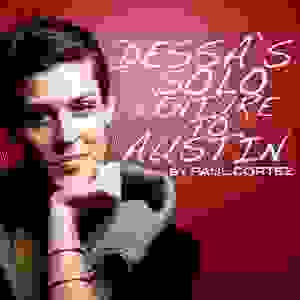
Dessa - ON THE ROAD TO AUSTIN
By Rapstation Editor for Rapstation.com
As the only female member of the Minneapolis hip-hop collective, Doomtree, Dessa is used to smelly vans and crude humor. After all, she tours with 6 other guys all over the world. Since the group's 2001 inception, Dessa (born Margaret Wander) has taken a stab at a solo career several times, beginning with 2005's False Hopes EP. The short 5 track, 15 minute effort provided enough time to highlight Dessa's biggest asset: her songwriting. With a background in spoken word and poetry, it's not surprising. In the meantime, she released a book of creative non-fiction titled Spiral Bound at the fourth annual Doomtree Blowout in 2008. Spiral Bound was published the following year on Doomtree Press. A seventy-page collection of fiction and poetry, it contains several personal revelations. Dessa's first solo album, A Badly Broken Code, was released in 2010 and Castor, the Twin followed in 2012. On the road again to Austin, Dessa is most likely enjoying a better smelling van. –Kyle Eustice. (Interview by Paul Cortez)
When did you fall in love with hip-hop and why?
As a teenager, I was a loner: a studious stoner. It wasn't until my late teens and early 20’s that I got serious about a career in music. By that time, Doomtree (the collective I'm now a part of) had already released their first discs. Some of their early recordings--particularly P.O.S' "Duct Tape"--were part of the rap aesthetic that drew me into the genre.
Who or what made you decide to pick up the mic and start performing?
I wanted to become a writer, but wasn't sure how to get published. On the urging of a friend, I entered a slam poetry competition and won. In the slam scene, I met a lot of emcees, and I wound up in a band. The transitions were pretty seamless. It was a very 'gateway drug' progression.
SXSW is seems to be a predominately indie band oriented, as a Hip-Hop artist, what do you hope to gain from your time there?
This June, I'm releasing an album called Parts of Speech. I'm bringing a full band to SXSW to showcase the new material--we'll have crushing drums, layered piano, bass, guitar, and three-part harmonies. It's a strong cast of players and a strong disc, so I'm hoping to generate some enthusiasm for the new record.
With record sales on the decline in this digital era, how important are tours now? Merch?
I serve as the Artist in Residence for the McNally Smith College of Music in St. Paul. Harry, the president of McNally, has a really great line: "There might not be a lot of jobs in this business, but there's a lot of work." To make my living as a musician, I combine a bunch of revenue streams: album sales, tour take, merch sales, residencies--all of them help pay rent. Although it can take a lot of time at the computer, I don't much mind the variability; I like keeping all the blades sharp.
How have you been navigating the social media waters, what have you done that has been fan favorites?
Pictures tend to garner more immediate interest than text-only posts. But I'm a language kid, so I still push hard on words--a really clever observation can go viral, too. I sometimes do a book club of sorts, where the people who follow me on Twitter comment on something we're reading, using the hashtag #lithop.
When the Rock And Roll Hall Of Fame started inducting bands in 1986, only 3 out of 279 performers who have been inducted fall into the hip-hop/rap category, most recently Public Enemy this year. As an artist that falls into this category, how does this make an impact on you?
I can honestly say that I think about the Rock and Roll Hall of Fame less than I think about almost anything. At this point, I'm grinding on the road, making records I'm proud of, and gunning to make a bigger name for myself. I'll let the Hall of Fame look after itself; I've got a lot of work to do before I start thinking about a legacy.
There is kind of a revolving door of rappers/emcees these days, what sets you apart from the pack and how will you attain longevity in such a fickle and oversaturated market?
I don't pay too much attention to prevailing trends. I believe listeners can tell when a sound is genuine; they'll know the bullshit from the sincere. So I don't sweat what's buzzing, I don't even think too much about genre when writing a song. A true story set to good music is hard to deny. And I'm not interested in making much else anyway.
By Paul Cortez for RAPstation.com